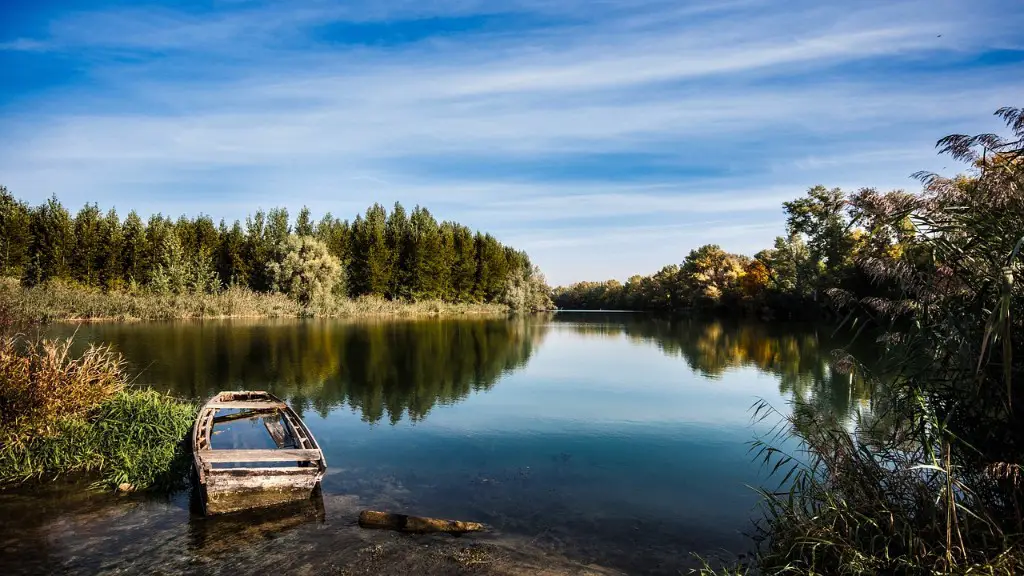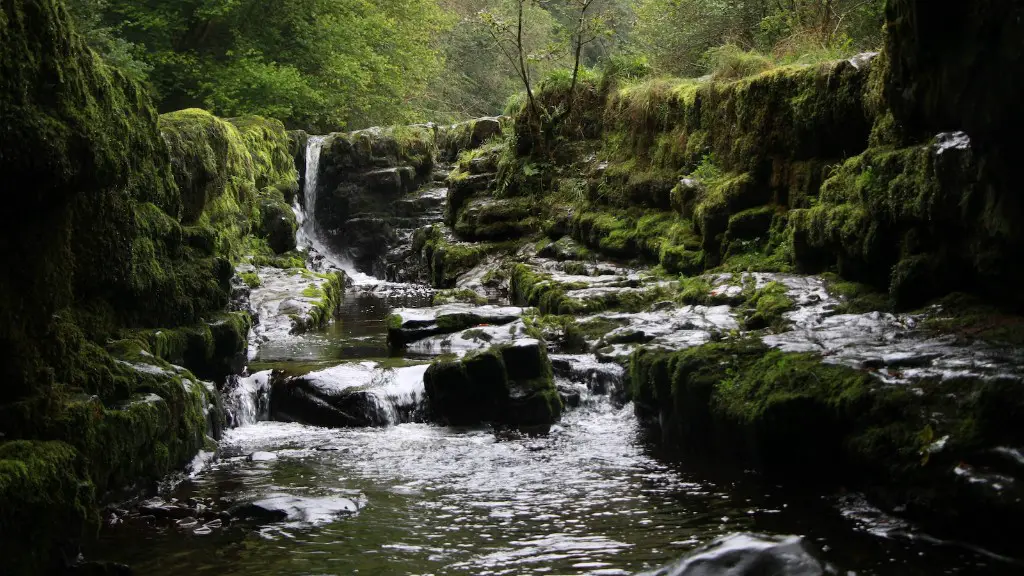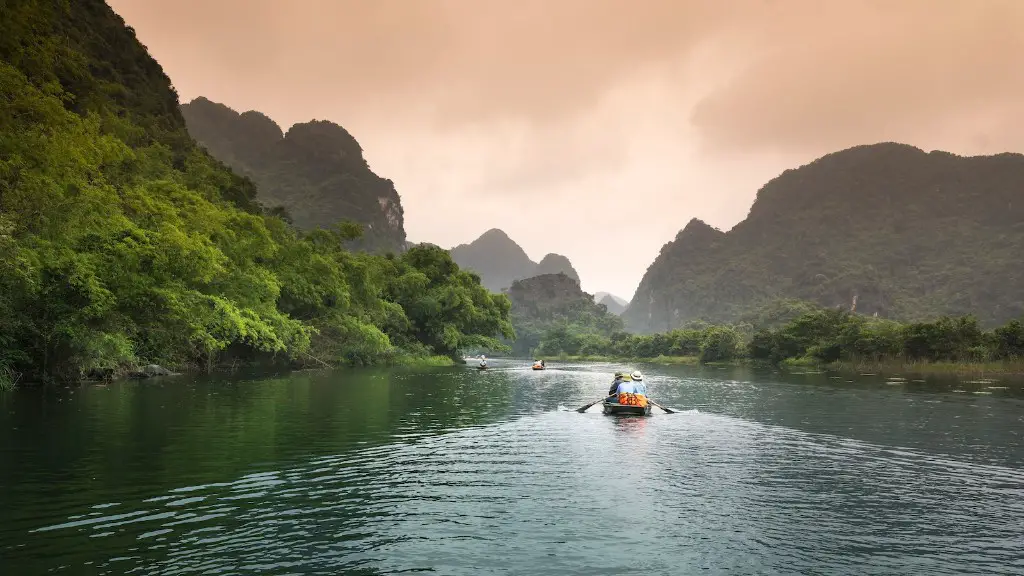Introduction:
The Nile River is a trans-boundary river located in northeast Africa, running through eleven countries including Burundi, Democratic Republic of the Congo, Eritrea, Ethiopia, Kenya, Rwanda, South Sudan, Sudan, Tanzania and Uganda. The river is the longest river in the world with a total length of 6,650 kilometers.
The Nile has been a source of lifegiving water, food, and energy for the region for thousands of years, having been essential to the development of the earliest major civilisations in the region. Today, it is still an essential source of life and vitality for many, bringing economic and social benefits to the countries that rely on it, and playing a huge role in Africa’s development.
Social and Economic Benefits
The Nile is a source of food, water, and energy for many countries, supplying much-needed sustenance to marginalized communities. The river’s waters provide a form of irrigation that is especially important during times of drought, enabling farmers to have sufficient water for their crops, and providing a food source for millions of people. The river also supplies water for both industrial and household needs, providing employment and economic stability to many local communities.
Fishing, livestock grazing, and hunting are also important sources of income along the Nile. Hunting is a particular source of income and is a valuable source of protein for local communities. The lake and wetland habitats of the Nile also provide a haven for animals, plant and other wildlife species, providing habitat for people to afford a more sustainable lifestyle.
In addition, the Nile also has the potential to be developed for other economic activities such as tourism, hydropower and transportation. The peaceful, tranquil nature of the river and its surrounding environment lend itself perfectly to nature-based tourism, and there is significant potential for increased tourism along the banks of the Nile.
The region’s hydropower potential is not yet fully utilized, although the region is reliant on hydropower for much of its energy needs. The river’s immense hydropower potential provides electricity to much of the region, providing an essential source of energy to power industrial and domestic uses.
The river also serves an important role in transportation. It is an ideal way to traverse vast distances quickly, and is often the only option in some parts of the Nile’s catchment area, where roads are not well developed. The Nile is also the major artery for shipping goods into and out of the region.
Environmental Benefits
The Nile’s immense size ensures that its ecosystem is protected by a variety of aquatic species, which means that it also serves as a barrier for pollutants and erosion. The waters provide a natural filter for pollutants, and a natural habitat for fish and other aquatic life.
The river’s floodplains are a vital source of natural flooding, which can be beneficial to the environment and the region’s agricultural productivity. The floodwaters provide nutrients and valuable fertilizer for crops, and act as a natural way of controlling pests and diseases.
The lake and wetland habitats of the Nile are also important in providing a habitat for birds and other wildlife species, along with providing shelter to many threatened and endangered species.
The river is also an important source of natural habitat and resources, with its waters providing a source of food and water for numerous wildlife species, including the endangered Nile crocodile.
Despite the immense environmental benefits of the Nile, the river and its basin are under threat from the increasing population and development in the region. The population growth has put an immense strain on the river, with pollution and overfishing leading to the river’s degradation.
Ethical Benefits
In addition to its economic and environmental benefits, the Nile is also a source of moral and ethical values. The Ethiopian historian, writer and philosopher Kebede Michael, has famously referred to the Nile as the “King of Kings” due to its spiritual, historic and cultural importance to the region.
The river is a source of inspiration for the people of the region, providing a source of hope and dreams for future generations. It symbolises the power of nature and its ability to bring peace and prosperity to the region.
The river is also an important source of solidarity and unity, with countries joining together to cooperate on its development and protection. Despite the various political disagreements in the region, the Nile has been a source of hope and unity, with countries uniting over their shared desire to protect the river and its basin.
The Nile is an essential part of Africa’s cultural identity, and the preservation of its many benefits is essential to the future of the region.
Conservation and Preservation
The increasing population, pollution and overfishing have led to the river’s degradation and its loss of aquatic life. In response, numerous conservation and preservation efforts have been underway. The Nile Basin Initiative, for example, is an intergovernmental agreement between 10 countries, covering the entire Nile Basin. The agreement works to develop the river in an environmentally friendly and equitable way, ensuring that both the resources and the environment are managed sustainably.
The National River Basin Development Plan of the Government of Egypt is another effort to protect the river. The plan focuses on implementing sustainable and equitable development plans, particularly aimed at reducing the environmental and social impacts of the human activities on the river.
The World Wide Fund for Nature (WWF) has also been active in promoting conservation efforts in the region, focusing on restoring and protecting the river’s wildlife and wetlands and on improving the livelihoods of people living along the river.
These efforts have helped to protect the Nile and its environment, and further efforts will be necessary to ensure the protection of its ecosystem and the sustainable use of its resources.
Environmental Education
Environmental education is essential to the sustainable use of the Nile’s resources, and is a crucial tool in ensuring the protection of the river. Environmental education can help to raise awareness of the importance of the Nile, and to promote sustainable use of its resources.
Environmental education can also enable people to understand the implications of their actions, and how their actions can affect the wider environment. This can enable people to make informed and sustainable choices.
Environmental education can also allow people to understand the complex, interrelated concepts of sustainability, enabling them to make informed decisions and to develop a sense of responsibility for the environment.
Environmental education should be targeted at all levels of society, from schools to universities, to businesses, to the general public. Through this, the people of the region can learn about the importance of ecotourism and sustainable use of the Nile’s natural resources, as well as its potential for promoting a healthy way of life.
Conclusion
The Nile River is an essential source of life for millions of people in the region, providing food, water, energy and many other essential social and economic benefits to the countries that rely on it. The river’s immense size provides a haven for wildlife and aquatic species, and its various habitats contribute to biodiversity in the region. The river is also a source of hope and unity, providing solidarity to the countries it flows through.
To ensure the protection of the river’s resources and its environmental and economic sustainability, conservation and preservation efforts must continue, and environmental education must be promoted. Through this, the people of the region can ensure the protection of the river, and ensure that its bountiful benefits are enjoyed by future generations.





